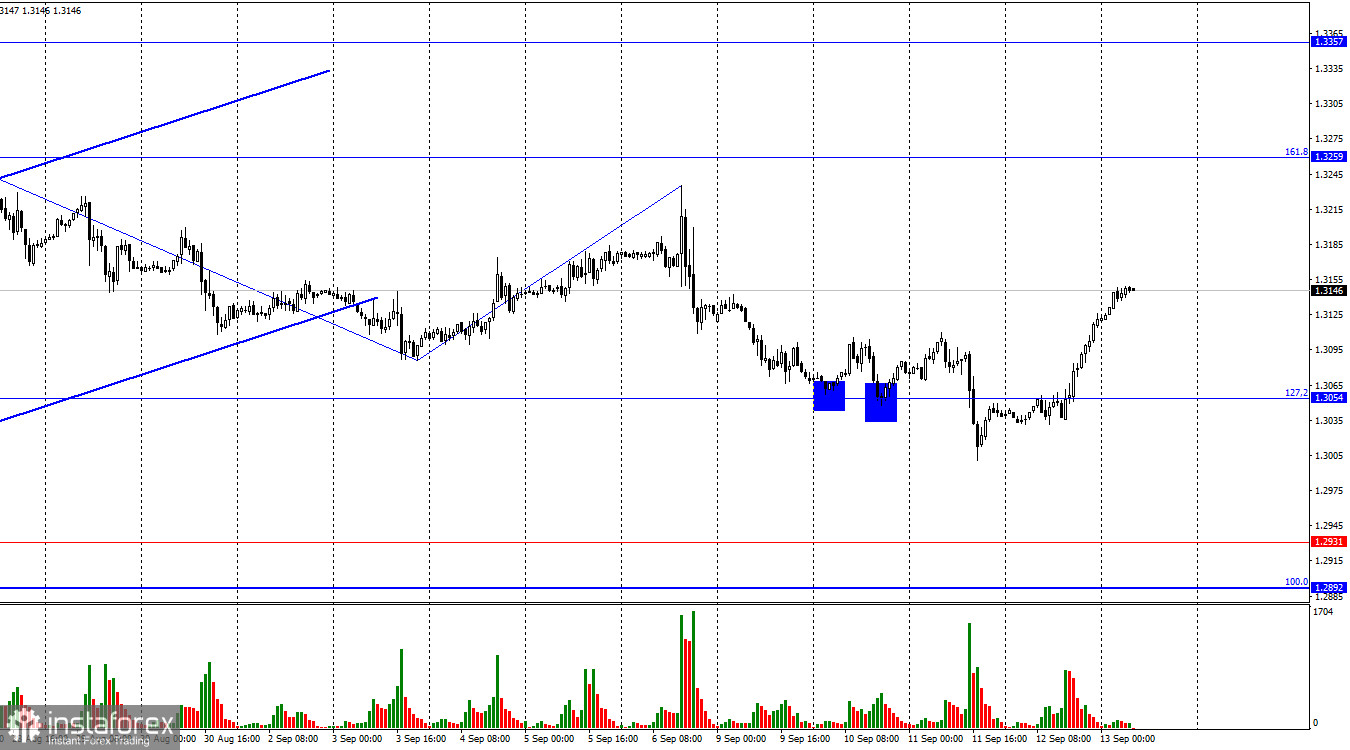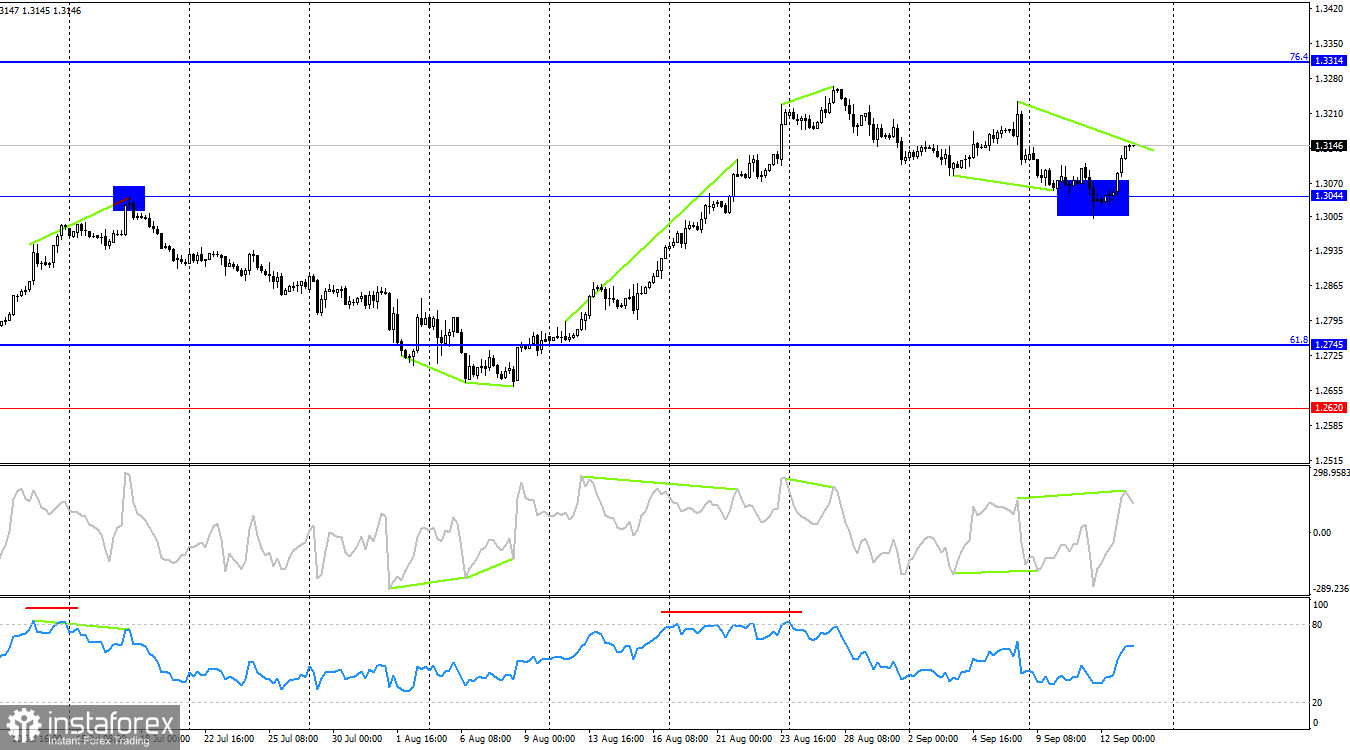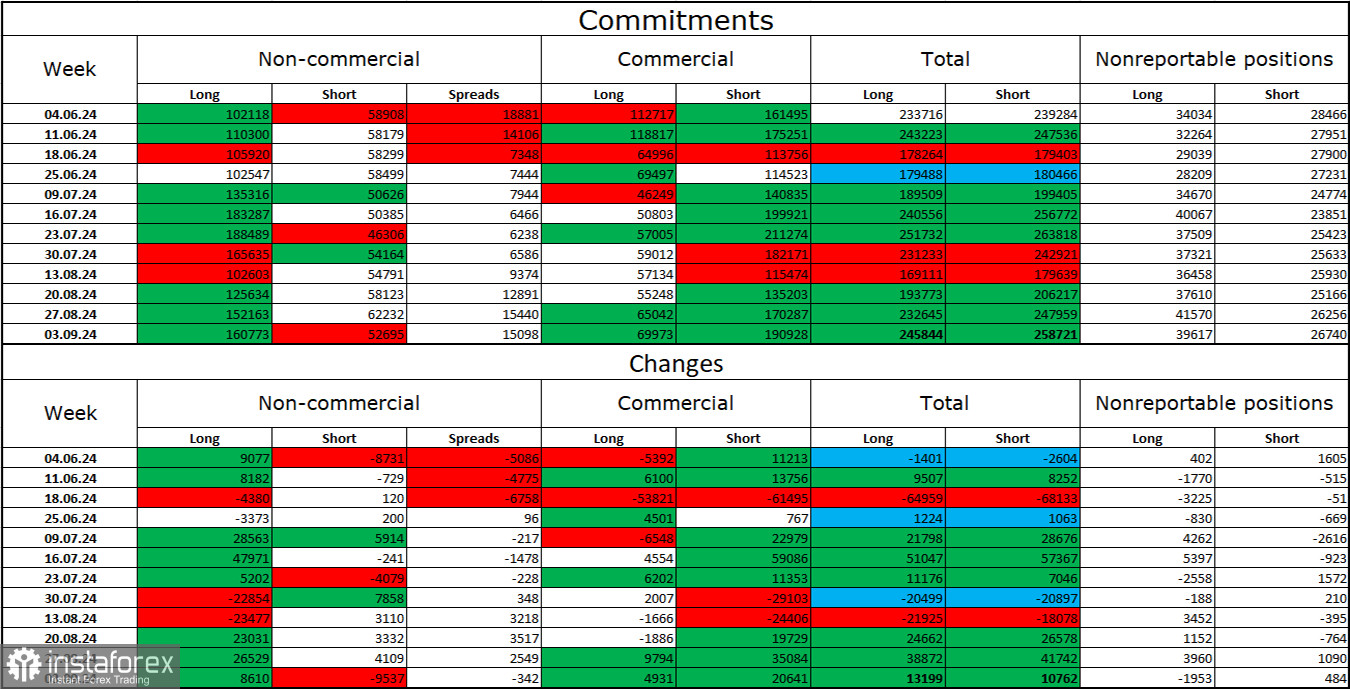On Thursday, the GBP/USD pair made a very unexpected reversal in favor of the pound and rose by 100 points. This movement didn't break the "bearish" trend, but as I said before, it looks quite strange. There were no signs of the British pound strengthening yesterday. Today, we can expect a reversal in favor of the U.S. dollar and a return to the 127.2% retracement level at 1.3054.

The wave structure is currently clear. The last completed downward wave didn't go below the low of the previous wave, and the last upward wave also didn't surpass the peak of the previous wave, which is at 1.3264. Therefore, we are currently seeing a trend reversal to the downside. The most recent downward wave has gone below the low point of the previous wave, confirming the formation of a "bearish" trend.
On Thursday, the news context was neutral for both the pound and the dollar. The number of initial jobless claims matched traders' expectations, and the Producer Price Index (PPI) came in at 0.2%, compared to the expected 0.1% month-on-month in August. It's hard to believe that the PPI was the cause of the sharp decline in the U.S. dollar, especially after the inflation report had led to dollar strengthening. In my opinion, yesterday's movement neither fits the current chart structure nor makes sense. It simply should not have happened. If the ECB had made a more "hawkish" decision than expected, or if Christine Lagarde had hinted at a pause in monetary easing, it could have justified the euro rising, which would have pulled the pound with it. However, there were no reasons for even the euro to rise yesterday. I expect both pairs to return to the "bearish" direction today.

On the 4-hour chart, the pair rebounded from the 1.3044 level and reversed in favor of the pound. Perhaps it was this rebound, rather than the ECB meeting or the PPI, that was the real reason for the pair's rise yesterday. I find this explanation more plausible than speculating about Christine Lagarde's disposition. The CCI indicator shows signs of an impending "bearish" divergence, suggesting a return to the 1.3044 level today. After that, I expect the pair to consolidate below this level.
Commitments of Traders (COT):

Sentiment among "Non-commercial" traders became significantly more "bullish" during the last reporting week. The number of long positions held by speculators increased by 8,610, while the number of short positions decreased by 9,537. Bulls still hold a solid advantage, with a gap of 108,000 between long and short positions: 160,000 versus 52,000.
In my view, the pound still faces the prospect of further declines, although the COT reports suggest otherwise. Over the past three months, the number of long positions has grown from 102,000 to 160,000, while the number of short positions has decreased from 58,000 to 52,000. I believe that over time, professional traders will begin to offload long positions or increase short positions, as all the possible reasons for buying the British pound have already played out. However, this is just an assumption. Technical analysis points to a likely decline in the near future, but the market still maintains a clear "bullish" trend.
News Calendar for the U.S. and the U.K.:
U.S. – University of Michigan Consumer Sentiment Index (14:00 UTC).
On Friday, the economic event calendar contains only one minor entry. The influence of the news on market sentiment for the rest of the day is expected to be weak.
Forecast for GBP/USD and Trading Tips:
Short positions on the pair are possible today if a clear "bearish" divergence forms on the CCI indicator on the 4-hour chart, with a target of 1.3044. I would not consider buying, even if the pair closes above the 1.3054 level, despite yesterday's rise in both currency pairs. The trend for the pound is still "bearish."
Fibonacci levels are drawn from 1.2892 to 1.2298 on the hourly chart and from 1.4248 to 1.0404 on the 4-hour chart.





















